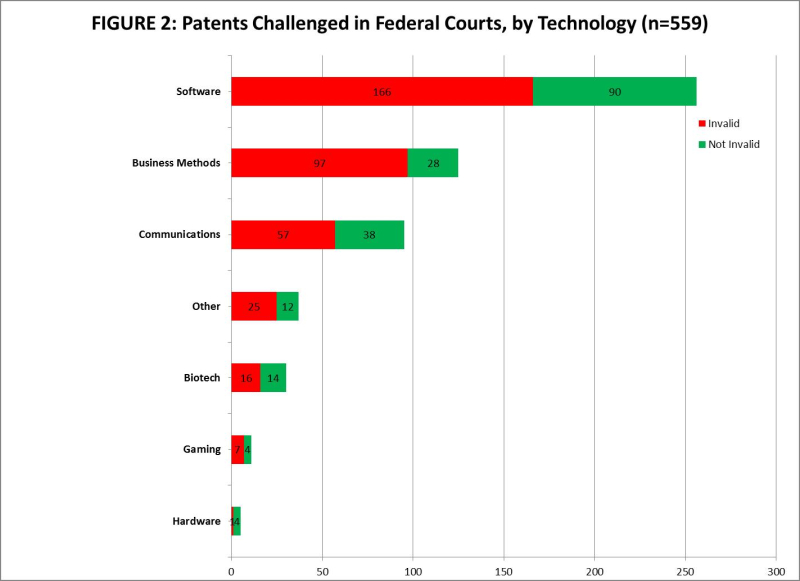

Credit: Robert R. Sachs
AT TIMES when the USPTO does not care about patent quality (apathetic at best) and the Supreme Court is giving more power to CAFC, the originator of software patents in the United States, one must pay close attention to enemies of software development, i.e. those who promote software patents.
"Alice is a lot stronger (Supreme Court) than most precedents and Enfish has proven to be rather useless in practice.""A three-judge panel on Monday found that a Texas federal judge jumped the gun when she ruled that software designed to filter internet content was ineligible for patent protection under the Supreme Court’s Alice decision.
"Judge Raymond Chen acknowledged that the patent claimed an abstract idea and that the claim limitations, taken individually, recite generic computer, network and internet components."
It's not just this one. Patent lawyers continue to worry about Alice killing software patents and any time there's an exception to that they leap at the opportunity, as they did yesterday [1, 2, 3] (the second one is also here) after CAFC had thrown a bone [1, 2, 3, 4]. It is not too shocking that the court which brought software patents to the US and has become rather notorious for corruption is throwing a bone to patent lawyers. Here is MIP's coverage of the case. "The Federal Circuit has found a software patent valid for the third time since Alice, ruling in Bascom v AT&T that “an inventive concept can be found in the non-conventional and non-generic arrangement of known, conventional pieces”," says the summary.
Does this mean that people can now just say Halo, Enfish or Bascom in order to overturn decisions in favour of software patents? Well, not really. Alice is a lot stronger (Supreme Court) than most precedents and Enfish has proven to be rather useless in practice. As the National Law Review put it the other day: "Ever since the Supreme Court’s decision in Alice Corp. v. CLS Bank shifted the contours of patent-eligible subject matter, district courts have wielded the two-part test set forth in that decision to dispatch scores of business method patents as being directed to unpatentable abstract ideas. In a recent example, the Massachusetts district court invalidated a patent relating to inventory forecasting software using the Alice test."
"Alice not only prevent new software patents from being asserted (or granted, if the USPTO actually decides to follow the rules rather than chase gold); it also retroactively devalues or revokes old software patents."This is generally the trend nowadays, as statistics serve to show. Software patents continue to drop like flies and there is no sign (at least not yet) of the Supreme Court reversing its course of action. Regarding Yahoo, which was destroyed by Microsoft, someone finally says the obvious about its patents, which are being put on sale. Yahoo's patents may be worthless because they're primarily software patents or in the words of a Forbes blogger: "The Yahoo patents being marketed cover a number of different technology areas, including e-commerce, search, messaging, and cloud computing. However, over 80% of these IP assets are categorized as software or business method patents."
Alice not only prevent new software patents from being asserted (or granted, if the USPTO actually decides to follow the rules rather than chase gold); it also retroactively devalues or revokes old software patents. Speaking of which, yesterday the EFF's Nazer presented the "Stupid Patent Of The Month: Storage Cabinets On A Computer" (as the name/title implies, this too is a software patent).
To quote Nazer: "How do you store your paper files? Perhaps you leave them scattered on your desk or piled on the floor. If you're more organized, you might keep them in a cabinet. This month's stupid patent, US Patent No. 6,690,400 (the '400 patent), claims the idea of using "virtual cabinets" to graphically represent data storage and organization. While this is bad, the worse news is that the patent's owner is suing just about anyone who runs a website.
"With few exceptions here and there (including some from CAFC) we remain quite confident that the trend remains phasing out of software patents in the United States.""The '400 patent is owned by Global Equity Management (SA) Pty. Ltd. ("GEMSA") which seems to be a classic patent troll. GEMSA is incorporated in Australia and appears to have no business other than patent litigation. The patent began its life with a company called Flash VOS. This company once offered a product that allowed users to run multiple operating systems on personal computers with x86-compatible processors. The '400 patent describes a graphical user interface for this system. The interface allows users to interact with "graphical depictions of cabinets" that represent memory partitions and different operating systems."
The nice thing is, many patents that are like that and can be described in physical terms (or analogies) would quite likely be deemed too abstract to be patentable. With few exceptions here and there (including some from CAFC) we remain quite confident that the trend remains phasing out of software patents in the United States. Software patents proponents like patent lawyers would have us believe otherwise because they're trying to find customers and sell their services. ⬆